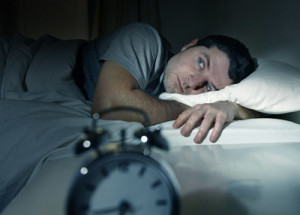 Many people have trouble sleeping, but there are many things that can influence the quality of sleep someone can get. When assessing sleep problems, it’s important to understand what is causing the problem in order to determine appropriate treatments. Generally, the causes of sleep problems are likely to be Physical, Mental, Environmental, or some combination thereof.
Many people have trouble sleeping, but there are many things that can influence the quality of sleep someone can get. When assessing sleep problems, it’s important to understand what is causing the problem in order to determine appropriate treatments. Generally, the causes of sleep problems are likely to be Physical, Mental, Environmental, or some combination thereof.
Physical Causes
Physical causes of sleep problems can be things such as ulcers or heartburn that cause enough pain to disturb natural sleep rhythms. Lying down can exacerbate heartburn because stomach acids will be more easily able to intrude on the esophagus. Injuries that have not healed or chronic pain from such things as arthritis can be uncomfortable enough to keep people from healthy sleep. Restless leg syndrome can also affect sleep because the irresistible urge to move the leg can cause discomfort resulting in an inability to fall asleep. These leg sensations are often worse at night when lying in bed. Among older adults, nocturia, or the frequent need to urinate, can disrupt sleep cycles, leading to problems sleeping.
One of the most common physical causes of sleep problems is apnea, or trouble breathing. People will sometimes stop breathing for short periods of time because of blockage of the airways. This will disrupt sleep patterns, and people may not even be aware that it is happening, except that they will feel tired all the time, no matter how much sleep they seem to be getting. Loud snoring can be a sign of sleep apnea, especially snoring interrupted by gasping, snorting, or choking.
Mental Causes
The most common type of sleep problem is insomnia, which is often a symptom of some underlying mental problem such as stress, anxiety, or depression. In fact, insomnia has been shown to increase the risk of depression, and depression can cause insomnia, leading to a vicious cycle. People will have trouble falling asleep but will nevertheless wake up early in the morning without feeling refreshed. Anxiety disorders lead to feelings of nervousness and tension that make it difficult to relax, making it even harder to fall asleep. Like depression, this can lead to a feedback cycle as people then become anxious about their inability to fall asleep. Even when people with anxiety disorders do manage to fall asleep, they might awaken suddenly with a feeling of shortness of breath and heart palpitations. This will make falling back asleep even more difficult.
Environmental Causes
Environmental causes of sleep problems do not only include the immediate environment in which a person sleeps, but can also include lifestyle. Things such as alcohol use or working the late shift can affect a person’s ability to get healthy sleep. Staying awake overnight and sleeping during the day puts the sleep cycle out of its natural rhythm. On the other hand, some people have a natural sleep rhythm that does not conform to their social requirements. For example, some people simply cannot fall asleep until after midnight even though their obligations require them to awaken at 6 or 7 in the morning. For these people, the cumulative effects of losing sleep can lead to long-term problems.
Many people suffer from sleep problems in the United States, and if you want to consult a doctor to find out more about any problems you might be having, search the IPALC database for physicians in your area specializing in “Sleep Medicine” at www.ipalc.org/find. Or, you can email IPALC at info@ipalc.org for more information about IPALC and help finding a physician to fit your needs.
Share on Facebook




 Southwest Florida Medicine.com is dedicated to bringing you the very best health information available today!
Subscribe or check back regularly!
Southwest Florida Medicine.com is dedicated to bringing you the very best health information available today!
Subscribe or check back regularly!